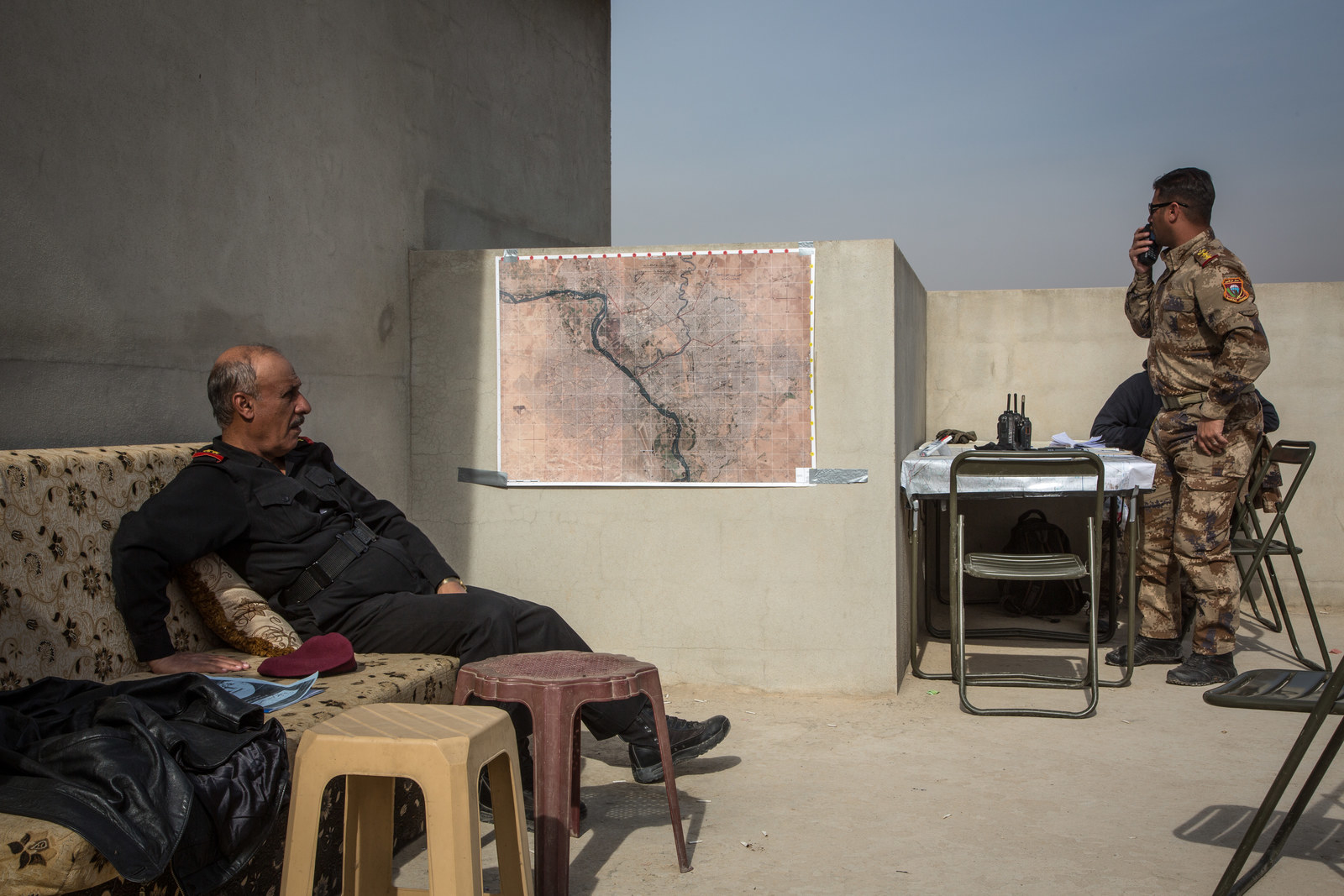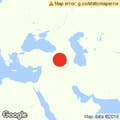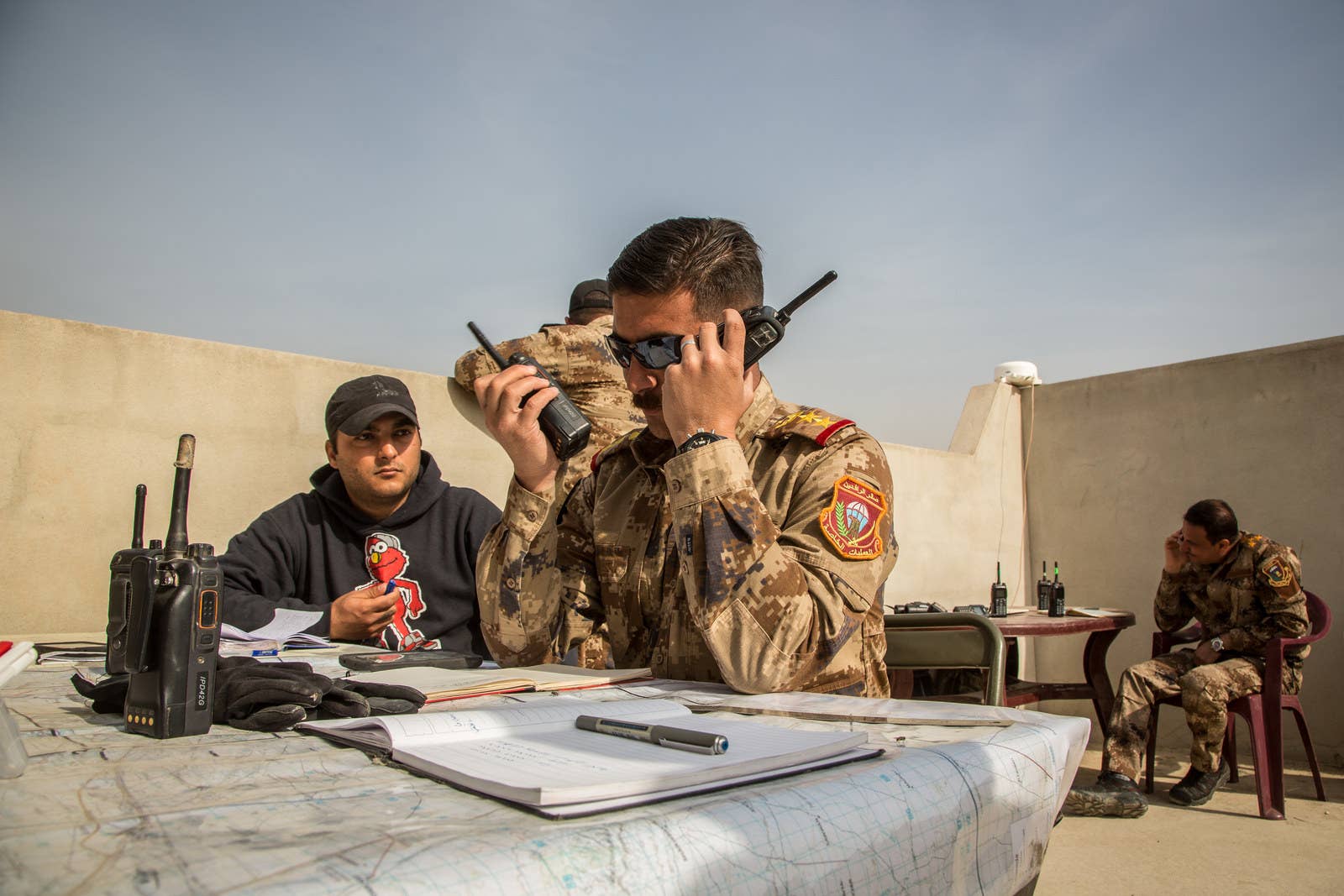
MOSUL, Iraq — Col. Arkan turned to the French military officer beside him as another ISIS mortar bomb exploded outside. “They found us,” he said. “Those fuckers.”
The Iraqi special forces commander had spent the day calling in US-led airstrikes on the militants from the roof of an abandoned house on Mosul’s edge — and then moved downstairs with his team when the mortar rounds began to hit.
The Frenchman, who was there to collect intelligence, mirrored Arkan with a moustache, an Iraqi military patch on one shoulder, and brown fatigues. “In our last position we stayed for two days, and on the second day they found us,” he said in accented English. “We have stayed two days here, and they found us again.”
Soldiers like Arkan are the unseen hands directing the most important asset the US-backed campaign for Mosul has: air power.
Battling ISIS in and around the city over the last month, Iraqi and Kurdish forces have been backed by daily airstrikes from US and its coalition of allies, which are called in by local and Western soldiers known as Joint Terminal Attack Controllers, or JTACs. Commanders on the ground say the strikes — from drones, helicopters and jets — have been decisive in the difficult fight. “We’re dropping bombs on their heads from the sky, and they’re driving bombs at us,” Arkan said, referring to the suicide car and truck bombs that have been ISIS’s most effective defense. For security reasons, he asked to withhold his last name.
His team left the house without incident that day — the ISIS mortar team was unable to hit its mark — and were back on the rooftop the next morning. They let two journalists from BuzzFeed News observe them in action, providing a rare window into their work.
American voices crackled on Arkan’s radio as two US choppers hovered overhead and a drone and fighter jet patrolled the sky. His call sign is Archangel, a fitting handle for someone who brings down heavy firepower from above.
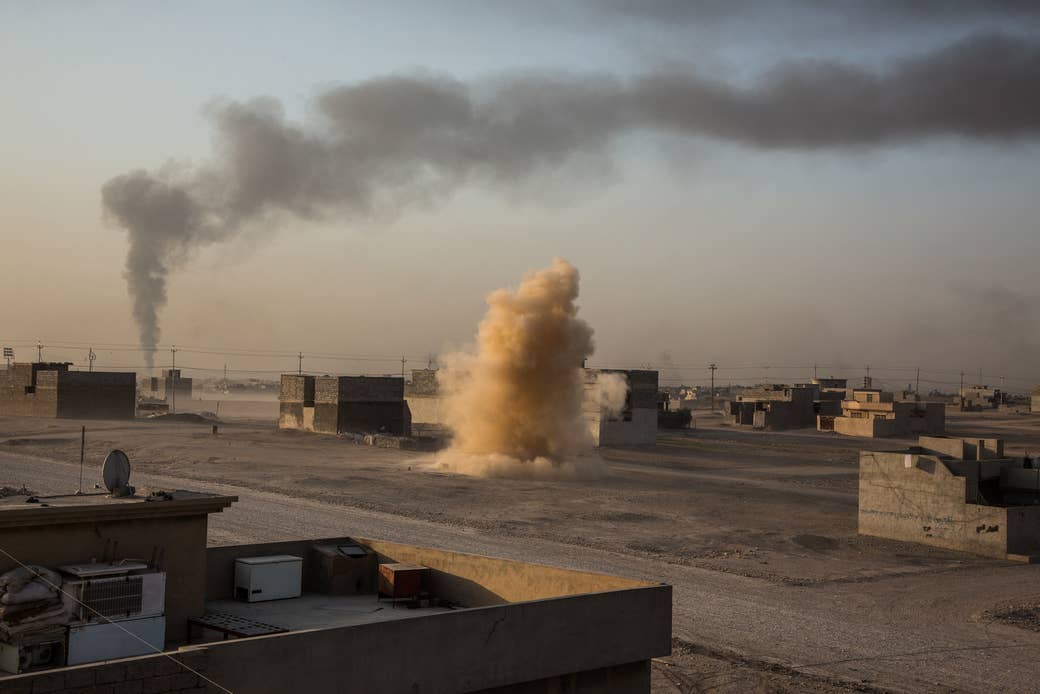
The 35-year-old colonel has spent more than a decade in the country’s most elite special forces unit, conducting raids alongside US troops during the Iraq War. Over the course of several trips to America, he also received extensive training from the US military. He paced the rooftop wearing wraparound sunglasses, with a touch of swagger in his step, as he plotted coordinates on laminated maps laid on a plastic table and taped to concrete walls.
Arkan’s role is unique because he has the authority to call in airstrikes himself, a task normally handled by Western special operations troops. He said a US commando, for instance, was calling in strikes for another JTAC team nearby. This means Arkan and his men do their work without the secretive Western troops among their ranks, though French officers from a separate intelligence liaison unit sometimes join them. JTAC teams can accompany soldiers in the field — Arkan’s team has an antennae-equipped armored vehicle for that — or set up outposts like the one on the rooftop.
Gunfire and explosions sounded deeper in the city as the Iraqi forces Arkan was supporting advanced on ISIS in a convoy of armored Humvees. For soldiers on the ground, the greatest threat is suicide vehicle bombs, and JTAC teams spend much of their time trying to stop them before they strike.
At around 11 a.m. last Wednesday, a call came in from an Iraqi commander on the ground saying that an explosive-laden dump truck was headed the convoy’s way.
Arkan found the area where it had been spotted on a map and called in the coordinates to coalition officers in an operations center set far from the front lines. “Be advised, we’re going to continue scanning those areas looking for a possible VBIED,” an American voice replied, calling the truck bomb by the military acronym for vehicle-borne improvised explosive device.
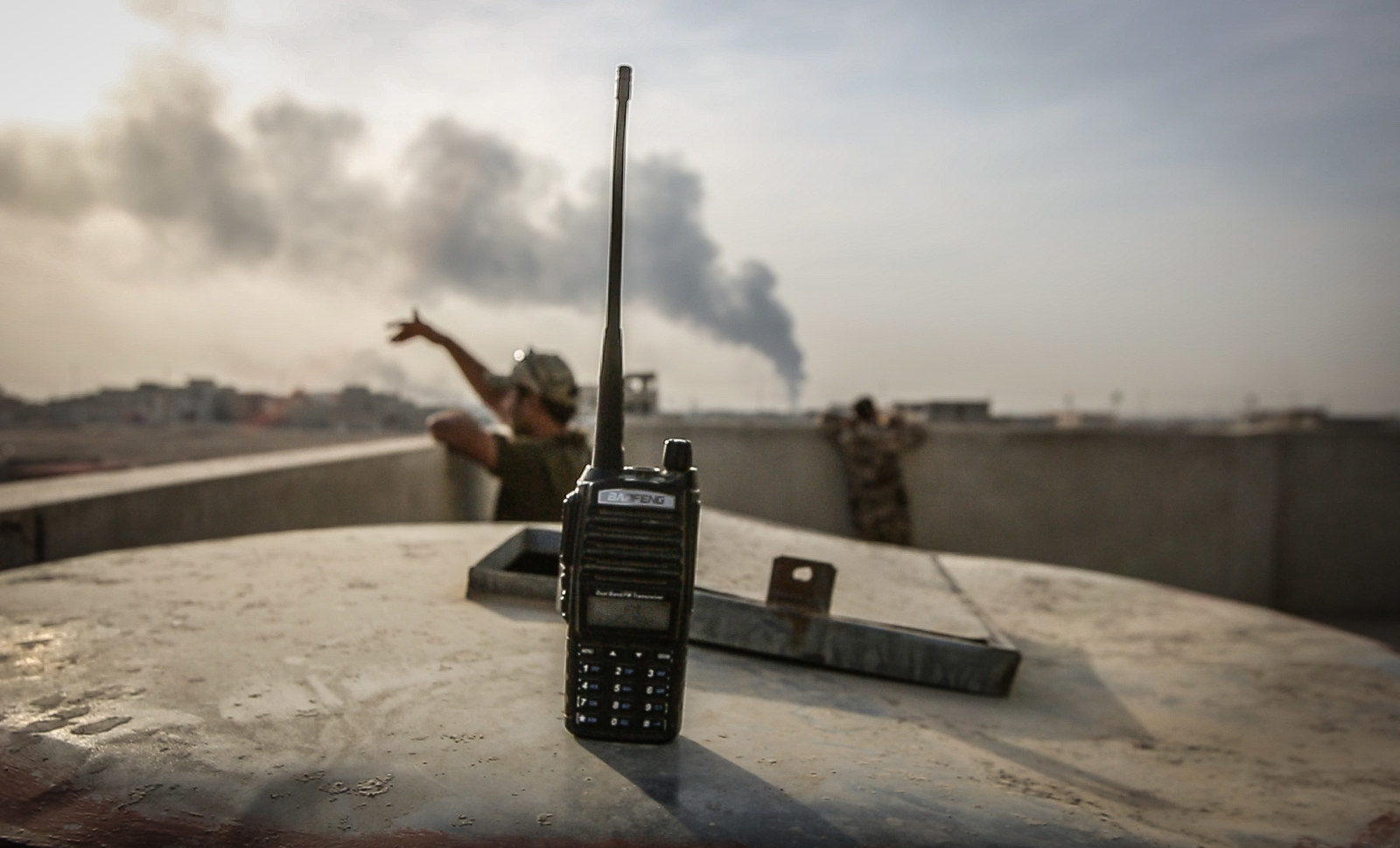
Before the coalition’s aircraft could spot the truck bomb, it made a beeline on the convoy, which opened fire with its heavy weapons. A massive blast sounded as the truck detonated without doing any harm. Arkan provided an update on his radio. “Glad to hear it,” the American said.
Then soldiers on the front spotted another truck bomb stalking the convoy through the city streets. Arkan believed it would use the same route to attack them — so he requested a “terrain-denial attack,” or an airstrike to destroy the road. “ASAP. ASAP, baby. I just need it right now,” he said.
Soon another explosion pulsed the air. Arkan, who hadn’t flinched all morning, now jumped up from his chair. He stared out toward the battlefield, worried for a moment that the truck had hit the convoy, but a radio call to its commander informed him that the truck had yet to approach.
Gunfire sounded around the rooftop, and Arkan ducked his head below the concrete walls. Civilians fleeing through the streets outside paused in apprehension, trying to determine where the bullets were coming from. An Iraqi officer was meanwhile staring quietly at five walkie-talkies on the plastic table, trying to stay focused. “You see all these radios? They might start talking at the same time. I don’t want to miss any number,” he said, referring to the coordinates that commanders on the ground call in. “Because you know, if you miss one number, you can shift the whole direction of the airstrike. And you don’t want to do that.”
The pace for the Mosul offensive has slowed with Iraqi forces inside the city — and a big part of the reason is their concern about casualties among the more than one million civilians still trapped inside. This has limited airstrikes, but it’s a concession Iraqi commanders say they’re happy to make.
Arkan ended up canceling his terrain-denial request after learning that an airstrike there would likely hurt civilians, saying the soldiers in the convoy had decided to risk defending against the truck bomb on their own. “These are our own people,” he said. “You can’t just bomb everything, you know?”
He said the threat to civilians was part of a long list of concerns he had to weigh for each strike, from the damage it would cause to the city to the potential threat to Iraqi forces nearby. “You hold responsibility for everything that you are [calling in],” he said.
Another request for an airstrike came in on the radio. “Hang on, we have a target,” Arkan said.
Iraqi forces had seen seven ISIS fighters in a defensive position in the convoy’s path. Arkan grabbed a tablet, swiped his finger to zoom in on a map of the area, and called in the strike.
Then he received word that a coalition missile had hit his target. “Seven dead,” he said, snapping his fingers. “Just like that.”
